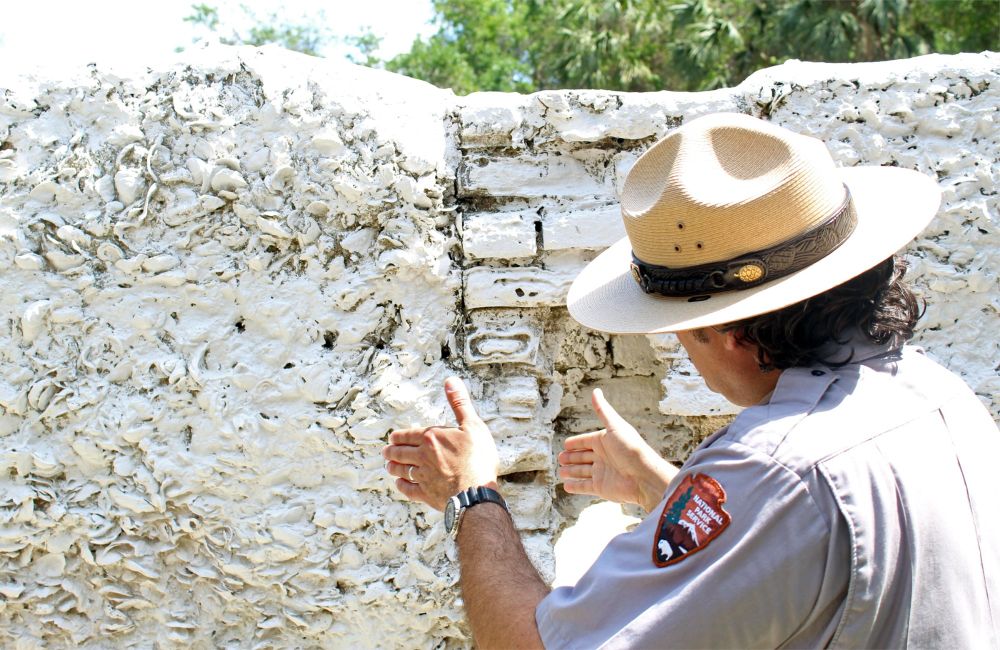
The Preservation of Knowledge in the Digital Age - Arcadia
How should access to digital publications be provided once they enter the public domain?
This new report sees a role for both dark archives and national libraries in moving beyond preservation to ensure widespread legal access.
arcadiafund.org.uk/highlights/t...
07.12.2024 16:16 — 👍 4 🔁 6 💬 1 📌 0

Tabby Concrete: An Eroding Architectural History
Linked through Black and Indigenous heritage, tabby concrete is a cross-generational, transnational building material that architectural historians must preserve.
How can we preserve architectural histories that transcend a singular site?
Tabby concrete, a material made by enslaved Black people from burnt and crushed oyster shells, points to new historic preservation practices that transcend time and distance. placesjournal.org/article/tabb...
25.09.2024 17:01 — 👍 1 🔁 1 💬 0 📌 1

Comb Sisters
Unwed women in China's Canton Delta found autonomy and sisterhood in gupouks, communal homes that emerged in tandem with the industrialization of silk-making.
The story of the Comb Sisters is about Chinese women’s autonomy. It’s also a story about the industrialization of silk, the geography of the Canton Delta, woman-only workplaces and the architectural form of gupouks, communal homes specially designed for Comb Sisters to live and care for one another.
27.11.2024 20:19 — 👍 20 🔁 5 💬 1 📌 1

‘Noticing is my way of opposing’ - Future Observatory Journal
Explore Anna Tsing's insights on design, ecology, and the more-than-human world in this dialogue with Justin McGuirk.
Noticing is my way of opposing a... modernist practice of looking towards an imagined future. Certain things get coded as possible futures and... all we can see is our trajectory towards one kind of imagined future, which isn’t actually the future but is a stereotyped dream future. - Anna Tsing
30.11.2024 06:33 — 👍 2 🔁 1 💬 0 📌 0

Front page of Enciclopédia de Antropologia, an online encyclopedia of anthropology from Brazil.
The texts says: The intention from the outset was for this encyclopaedia of anthropology to be used as a work tool. Initially resulting from a partnership between students and professors of the Department of Anthropology at the University of São Paulo (USP), Brazil, it was born in the classroom, fed by the exchanges and debates that took place on the regular graduate courses. The project expanded, overflowing its original spaces, although remaining faithful to the spirit that first guided it – a spirit marked by experimentation and mutual learning, which, day by day, defined the profile and content of the work. Reflecting the way it has grown and evolved, the name attributed to the project (‘Encyclopaedia’) should not give the illusion of totality or completeness. On the contrary, it is a work in continual formation whose developments and additions will be defined by the research and the combined reflections of staff and students. While it diverges from the idea of a totality that usually informs the encyclopaedic project, it retains the dimension of a collective collaboration, hence the decision to maintain the name.

Front page of Enciclopédia de Antropologia, an online encyclopedia of anthropology from Brazil.
The text says: The Enciclopédia de Antropologia contains individually authored and alphabetically organized entries covering biographies of authors and activists, publications (books, essays, edited volumes), concepts and debates, intellectual currents, subfields, and institutions. Deliberately synthetic and presented in an accessible language, the entries are designed to guide those interested in learning more about concepts, works, and authors central to anthropological reflection. A work and training tool for those who produced the texts, the EA is also intended as a research and learning tool for the reader, who, in addition to being able to browse through the published texts, will also have access to a bibliography, allowing them to explore new paths if they so wish.
Of our more than 100 entries in Portuguese, those specifically related to Brazil, such as Brazilian authors, institutions, and issues were translated into English. They are accompanied by editor's notes containing additional explanations and contextual information, written for our international readers.
Our objective is to disseminate knowledge produced in academia. Readers are therefore more than welcome to circulate the published texts as long as they are fully cited with the title of the entry, the name of the author(s), the website address, and the date when the entry was consulted. We offer examples of how to cite each entry at the end of them.

Alphabetical index of the encyclopedia, with two entries: Amerindian perspectivism, Sandra Benites

We have launched the English version of Enciclopédia de Antropologia, an online encyclopedia of anthropology from Brazil.
We have translated 15 entries covering Brazilian topics, such as Amerindian perspectivism, Afro-Brazilian feminists and Indigenous authors. Please share it!
ea.fflch.usp.br/en
29.11.2024 17:41 — 👍 47 🔁 22 💬 3 📌 2

Join us in Wageningen on November 27 for the first iteration of our 'Technicalities Speaker Series'! Dr. Maria Luísa Lucas will reflect on the 'Ethics and the Circulation of Indigenous Data'
20.11.2024 19:48 — 👍 4 🔁 0 💬 0 📌 0








